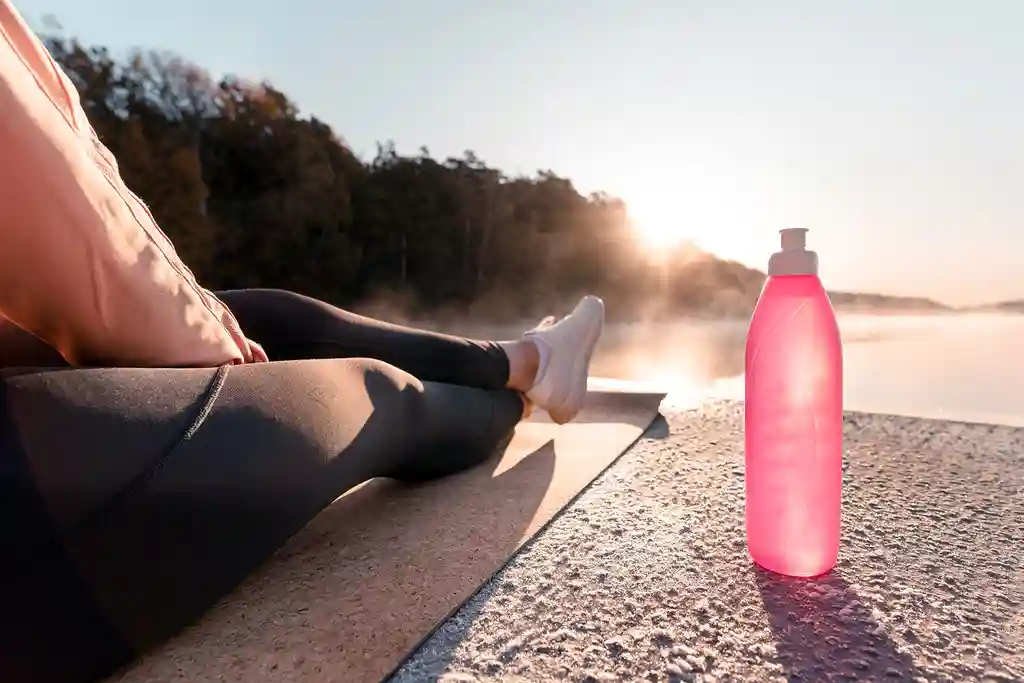
“By meeting pain with a tender presence,
we transform our wounds and losses into fierce grace.” – Tara Brach
Whether we are living with chronic conditions, responding to our tumultuous times, or navigating an ever-changing new normal, prioritizing self-care is critical for individual well-being and the precious interconnectedness that defines our humanity. When we can take better care of ourselves – tending to both the physical and the formless – we till our soil with the resilience and equanimity that help us face each other with more integrity and compassion.
Pathways to self-care can be simple yet profound. Like other personal commodities necessary to survive and thrive, privilege and access can define the quality of these pathways. Our own personal histories, lived experiences, and level of readiness may also present barriers to wholesome and sustainable nutrition, equitable health care, and emotional healing. We all deserve tender, thoughtful care, and we each manage a unique and nuanced set of needs. For me, starting small and leaning on simple, practical ways of caring for myself have helped me build an approachable daily practice that continues to evolve as I do. It all starts with gratitude.
1. Gratitude
My self-care begins with gratitude, first and foremost. While I may struggle with chronic conditions and waves of emotion from day to day, I am grateful for a healthy, able body and its miraculous functions. Every morning when my eyes blink open and my feet find the floor, I give thanks. Thanks for another day, another breath, another opportunity to serve this life and touch the lives of others.
2. Routine
I’ve learned to make time for myself and lean on my routine to stay healthy and balanced. This means waking earlier, scheduling time for thoughtful hygiene, preparing and enjoying simple meals, taking breaks when I need to, and prioritizing both movement and rest. I have lived large swaths of my life being pulling along by the frenetic pace of the day, and my every intention now is to be more intentional about how I use my precious time for myself and others.
3. Rest
Being a human can be tiring. Working, growing, healing, struggling, helping, coping, keeping our routines – it can all be exhausting. Committing to a set sleep schedule helps me restore myself, stay energized, and make consistently healthier choices during my day – both physically and emotionally. For me, this also means minimizing screen time in favor of meaningful reading or quiet stillness just before bed.
4. Respect
For many years, a lack of self-respect translated into self-neglect, unhealthy habits, blaming, and regretful reactivity that kept me disconnected and feeling powerless. An amalgam of chronic illness, grief, anxiety, and burnout created a flashpoint for me – a clarion call for change. As part of this change, I continue to “do the work” in therapy to address and heal the source of my wounds, take responsibility for how I show up for myself and others, and set and reset healthy boundaries, as needed. When therapy is not an option, I lean on self-directed behavioral learnings through books, podcasts, and online offerings to broaden my understanding, nurture compassion, and help free myself from the limits of my conditioning.
5. Movement
Small, simple bouts of movement help me focus on what I can do, not what I can’t do. A walk around the block, a few minutes of stretching during the day, or a bike ride to the grocery store are simple ways to keep my body moving. Intentional activity – no matter how small – helps clear my mind, release stress, and reset myself for whatever comes next. For me, it doesn’t have to be complicated, lengthy, or intense to make an impact on my mood and overall physical fitness. And it all adds up.
6. Mindfulness
While my formal meditation practice has evolved and deepened over the years, I often lean on everyday pathways to presence that help me remain calm and responsive, as opposed to agitated and reactive. Simple breathwork, single-tasking, and pausing throughout the day are how I take care of myself in small, inner ways. Oftentimes, I will take three deep breaths before the start of a meeting or interaction, sit with my eyes closed in my car for 30 seconds before pulling out of my parking spot, or use a few minutes of my lunch break to box-breathe. My nervous system is the happy and regulated beneficiary, and just a few conscious breaths can usually bring me back to myself and help me be more present and receptive for others.
7. Moderation
Declining physical and emotional health emphasized the interrelatedness of excess in my life, and my weight loss journey was the catalyst for clarity. Learning more disciplined ways of eating helped me recognize opportunities for more boundaried ways of living, loving, and working, as well. The ripple effects of moderation have had a profound impact on my well-being and overall quality of life. I recently committed to living alcohol-free as another way to unlock new levels of personal healing and growth.
My simple seven has seen me through 8 months of sobriety and counting. And I am so very grateful.
Photo Credit: luza studios / E+ via Getty Images
Important:The opinions expressed in WebMD Blogs are solely those of the User, who may or may not have medical or scientific training. These opinions do not represent the opinions of WebMD. Blogs are not reviewed by a WebMD physician or any member of the WebMD editorial staff for accuracy, balance, objectivity, or any other reason except for compliance with our Terms and Conditions. Some of these opinions may contain information about treatments or uses of drug products that have not been approved by the U.S. Food and Drug Administration. WebMD does not endorse any specific product, service or treatment.
Do not consider WebMD Blogs as medical advice. Never delay or disregard seeking professional medical advice from your doctor or other qualified healthcare provider because of something you have read on WebMD. You should always speak with your doctor before you start, stop, or change any prescribed part of your care plan or treatment. WebMD understands that reading individual, real-life experiences can be a helpful resource, but it is never a substitute for professional medical advice, diagnosis, or treatment from a qualified health care provider. If you think you may have a medical emergency, call your doctor or dial 911 immediately.





